
Fast, affordable Internet access for all.

Advocates for better Internet access are breathing a sigh of relief in New York as the State Assembly passed a budget bill yesterday that did not include an amendment that would have undermined the state’s municipal broadband grant program.
As we reported last month, buried in language near the bottom of the Assembly budget proposal was a Trojan horse legislative sources said was being pushed by lobbyists representing Charter Spectrum.
The amendment, which did not survive the budget reconciliation process, proposed to limit Municipal Infrastructure Program grants to projects that targeted “unserved and underserved locations only” – a restriction that would have made municipal broadband projects in the state less likely to become financially viable.
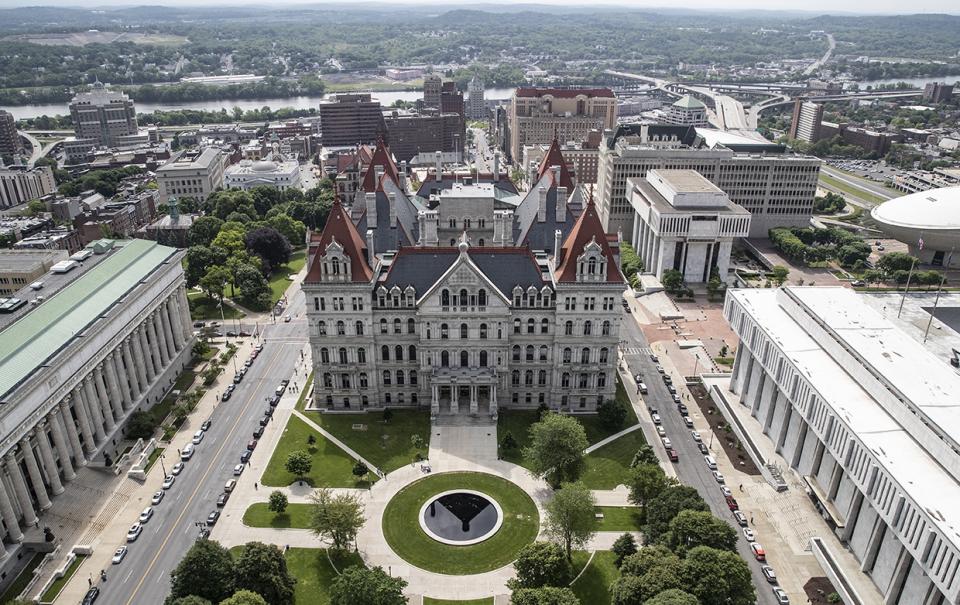
Created as part of New York’s billion dollar ConnectALL Initiative, the MIP is specifically designed to support municipal broadband projects. Such projects are routinely targeted by lobbyists for the big monopoly providers intent on preventing any competition to their often spotty, high-cost service offerings.
Massachusetts and New York officials hope to entice affordable housing property owners with new grant programs that would pay the retrofitting costs to expand high-speed Internet connectivity into decades-old affordable housing developments.
The programs aim to focus on the multitude of multi-dwelling units (MDUs) in those states, particularly housing developments built before the advent of the Internet.
With property owners and Internet service providers (ISPs) often reluctant to pay the costs of getting these buildings up to broadband speed, Massachusetts and New York have launched initiatives – using a portion of their federal broadband funds – to chip away at the digital divide in housing developments where a significant number of tenants live in buildings not wired to support reliable broadband or where the service is not affordable, thanks to agreements with monopoly providers.
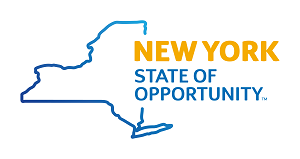
New York Bytes Into Broadband Affordability
In December, New York Governor Kathy Hochul’s office announced the state’s ConnectALL Office (CAO) was setting aside $100 million New York State received from the federal Capital Projects Fund (courtesy of the American Rescue Plan Act) to bring broadband connectivity to 100,000 affordable housing units across the Empire State.
In announcing New York's Affordable Housing Connectivity Program, Hochul said:
“With work, school, and essential government services going digital, affordable homes need affordable, reliable broadband, and this funding will help bolster our efforts to build housing equipped with the basic tools that New Yorkers need to succeed.”
Language added to a New York State budget bill is threatening to undermine a municipal broadband grant program established by Gov. Kathy Hochul’s office earlier this year.
Known as the Municipal Infrastructure Program, it was designed to provide grant funding for municipalities in the state eager to build publicly-owned, locally controlled broadband infrastructure as a way to ensure ubiquitous, affordable access to high-quality Internet after decades of frustration with expensive, spotty and uneven service from the regional monopolies.
Currently, New York state lawmakers are in the midst of budget proposal season in which the Governor’s office and both legislative chambers (the state Senate and Assembly) have until April 1 to reconcile and complete a final budget for the upcoming fiscal year.
Buried near the bottom of the Assembly budget proposal (A8805B) is a Trojan horse legislative sources say is being pushed by lobbyists representing Charter Spectrum, the regional cable monopoly and 2nd largest cable company in the U.S. that was nearly kicked out of New York by state officials in 2018 for atrocious service.
One year after launching a municipal fiber network, Dryden, NY officials say they’re making steady progress in their quest to expand affordable fiber broadband to the entire town of 14,500.
While the effort hasn’t been without obstacles, town leaders say the public response to their foray into broadband has been overwhelmingly positive.
“While there are challenges, we are continuing to make great progress in the buildout,” Dryden Town Supervisor Jason Leifer tells ILSR. “We have support from our residents, who continue to show interest in this project. We also have financial support from Tompkins County in the form of grants–and from neighboring municipalities who are interested in replicating our model.”
The city’s network began with a 50-home trial pilot trial in the southwest part of town. The broader $15 million network will be funded by a combination of bonds, $2 million in federal COVID-19 disaster relief funding, an Appalachian Regional Commission grant, and eventually, subscriber revenues.
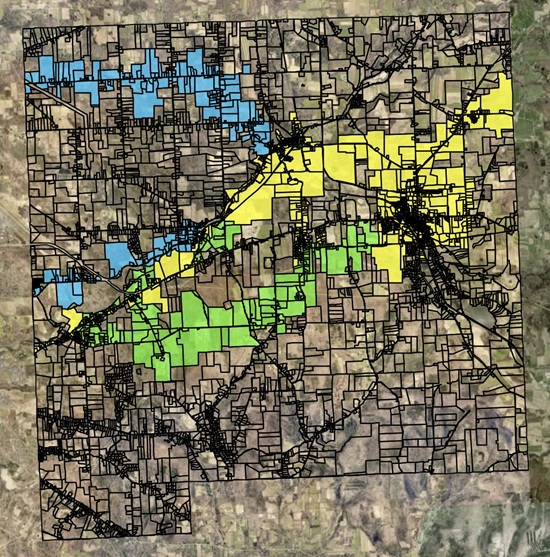
The town took a phased approach to deployment, first by connecting the backbone of the network in the southeast of the city, followed by a focus on the western and eastern halves of the municipality, respectively. The Dryden fiber website features a build map that helps locals track network progress.
“We have currently passed over 420 addresses with our buildout,” freshly-appointed Dryden Fiber Executive Director David Makar tells ISLR. “This includes over 150 rental properties – mostly single family homes and apartments – as well as many owner occupied homes and businesses. We are still in phase one, and as we move into the village of Dryden and the hamlets of Varna, Ellis Hollow, and Etna, we will be in phase two.”
Yesterday, New York Gov. Kathy Hochul announced a $228 million infusion of federal funds the Empire State will earmark for its recently established Municipal Infrastructure Program (MIP).
Created as part of New York’s billion dollar ConnectALL Initiative, the MIP is specifically designed to support municipal broadband projects, which have shown to be a viable, and increasingly popular, way to bring affordable, high-quality Internet service to an entire community.
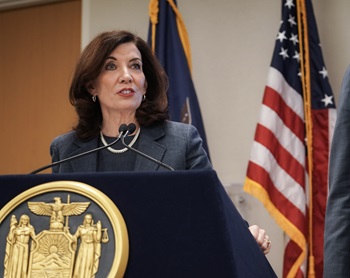
New York is a notable exception to what most other states are doing as those states prepare to funnel the lion’s share of its federal broadband funds to the big incumbent providers with scant, if any, support for publicly-owned broadband projects. In New York – similar to states like Maine, Vermont, and California – state leaders are devoting a significant chunk of federal funds, all $228 million of its recent disbursement of Capital Projects Funds, to build publicly-owned, open access networks.
“Broadband infrastructure in the Municipal Infrastructure Program will be owned by a public entity or publicly controlled, and Internet Service Providers will use the new broadband infrastructure to provide New Yorkers with affordable, high quality service options,” the press announcement said.
City officials in Syracuse, New York have formally approved a new project to provide heavily discounted wireless broadband to low-income city residents. The plan is being made possible courtesy of the $1.9 trillion American Rescue Plan Act (ARPA), $123 million of which has been doled out to Syracuse city leaders for various urban improvement efforts.
After issuing a request for proposals (RFP) last year, Syracuse officials say they’ve selected Community Broadband Networks FLX to help build the fledgling, city-owned network. City officials say the finished project, which is estimated to be completed by the end of the summer, should cover 10 Census tracts in the south, southwest and west sides of the city for a total project cost of somewhere around $3.5 million.
Once completed, the network should provide wireless broadband service at speeds up to 100 megabits per second (Mbps) to roughly 2,500 Syracuse residents currently living below the poverty line in a city of 146,000.
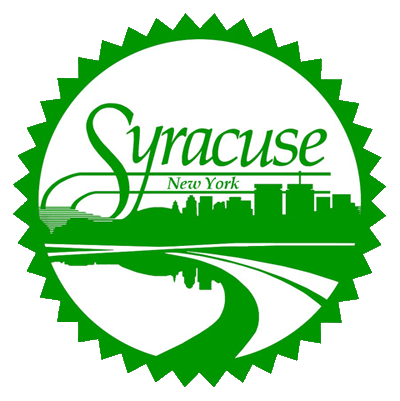
On Monday, March 27 the Syracuse Common Council voted to formally approve the project, which will utilize fixed wireless technology in a bid to reduce overall project costs. Participating users will be given a free router and modem, which in turn will connect to city transmitters affixed to local city-owned buildings and utility poles.
Nichols, New York (pop. 2,300) is the latest U.S. community to embrace open access, community-run fiber as an alternative to monopoly power. The upstate New York town, saddled among rolling green hills close to the Pennsylvania border, hopes the new initiative will boost broadband availability and lower costs.
A nonprofit by the name of the Southern Tier Network (STN) has been tasked with building the Nichols fiber network. In a September status update, STN officials stated that five miles of fiber had already been deployed, and they’re waiting for New York State Electric and Gas (NYSEG) and Verizon to approve requests to use local utility poles to string more.
In-home installations began on September 12th. So far the open access network only serves as home to one ISP: Ithaca, New York based Fiberspark, which currently offers locals broadband tiers ranging from 100 Megabit per second (Mbps) down and 20 Mbps up for $40/month to a symmetrical gigabit per second (Gbps) tier for $80 per month.

The project was made possible by New York State’s ConnectALL initiative, a $1 billion broadband expansion effort recently heralded as one of the biggest investments in broadband infrastructure in state history. The program was financed through existing state funds and a significant infusion courtesy of federal funds.
Harnessing its American Rescue Plan funds, the city of Syracuse is seeking a partner to launch a pilot project as a precursor to creating a citywide municipal broadband network and to support the city’s broader digital inclusion efforts.
In his 2022 State of the City address, Syracuse Mayor Ben Walsh laid out the vision, recognizing that now is a time of opportunity.
"At no time in the past half century have conditions aligned so favorably for the City of Syracuse," Walsh said. "Population is growing. Graduation rates are rising. Private investment and job creation are again on the upswing. Our city fund balance has grown. The American Rescue Plan provides an unprecedented injection of federal aid — $123 million – to address challenges created and made worse by the pandemic. The Bipartisan Infrastructure Framework will pour tens of millions into the infrastructure challenges that always seemed just out of reach – roads, water, and broadband."
Syracuse wants to seize the opportunity by investing in both improved telecommunication infrastructure and digital literacy programs.
It has led the mayor’s office to issue a Request-for-Proposals (RFP) for the design, implementation and maintenance of a municipal network that would target households in Syracuse not currently served by the city’s incumbent providers (AT&T, Spectrum, and T-Mobile Home Internet).
The deadline for submitting proposals is 2:30 pm ET October 11.
Seeking Open Ended Innovative Proposals
Harnessing its American Rescue Plan funds, the city of Syracuse is seeking a partner to launch a pilot project as a precursor to creating a citywide municipal broadband network and to support the city’s broader digital inclusion efforts.
In his 2022 State of the City address, Syracuse Mayor Ben Walsh laid out the vision, recognizing that now is a time of opportunity.
"At no time in the past half century have conditions aligned so favorably for the City of Syracuse," Walsh said. "Population is growing. Graduation rates are rising. Private investment and job creation are again on the upswing. Our city fund balance has grown. The American Rescue Plan provides an unprecedented injection of federal aid — $123 million – to address challenges created and made worse by the pandemic. The Bipartisan Infrastructure Framework will pour tens of millions into the infrastructure challenges that always seemed just out of reach – roads, water, and broadband."
Syracuse wants to seize the opportunity by investing in both improved telecommunication infrastructure and digital literacy programs.
It has led the mayor’s office to issue a Request-for-Proposals (RFP) for the design, implementation and maintenance of a municipal network that would target households in Syracuse not currently served by the city’s incumbent providers (AT&T, Spectrum, and T-Mobile Home Internet).
The deadline for submitting proposals is 2:30 pm ET October 11.
Seeking Open Ended Innovative Proposals
Similar to a recent request for proposals from Onondaga County (where Syracuse is the county seat), the city is seeking open-ended and innovative proposals. City officials have adopted a technology neutral approach and are not specifically asking for proposals to build a fiber network as most new municipal broadband proposals involve. Still, the city does have some parameters in mind.

This week on the podcast Christopher is joined by Scott Rasmussen, Acting Director of the New York State ConnectALL Office. During the show, the two dive into how New York will spend its broadband funds to support municipal networks and partnerships, the challenges of public-public partnerships between local governments working together on deployments, and what we can expect success to look like in the near future.
This show is 25 minutes long and can be played on this page or via Apple Podcasts or the tool of your choice using this feed.
Transcript below.
We want your feedback and suggestions for the show-please e-mail us or leave a comment below.
Listen to other episodes here or view all episodes in our index. See other podcasts from the Institute for Local Self-Reliance here.
Thanks to Arne Huseby for the music. The song is Warm Duck Shuffle and is licensed under a Creative Commons Attribution (3.0) license.